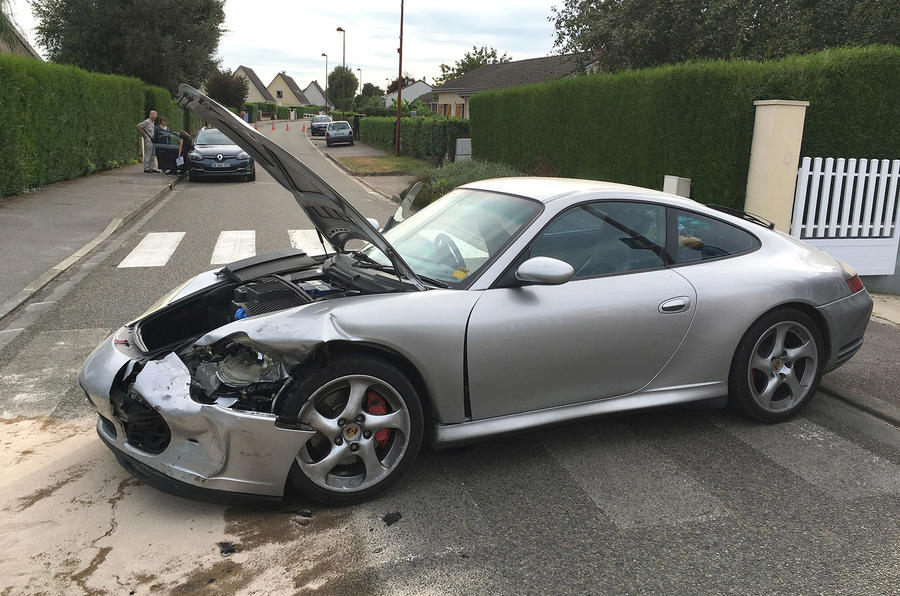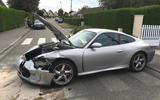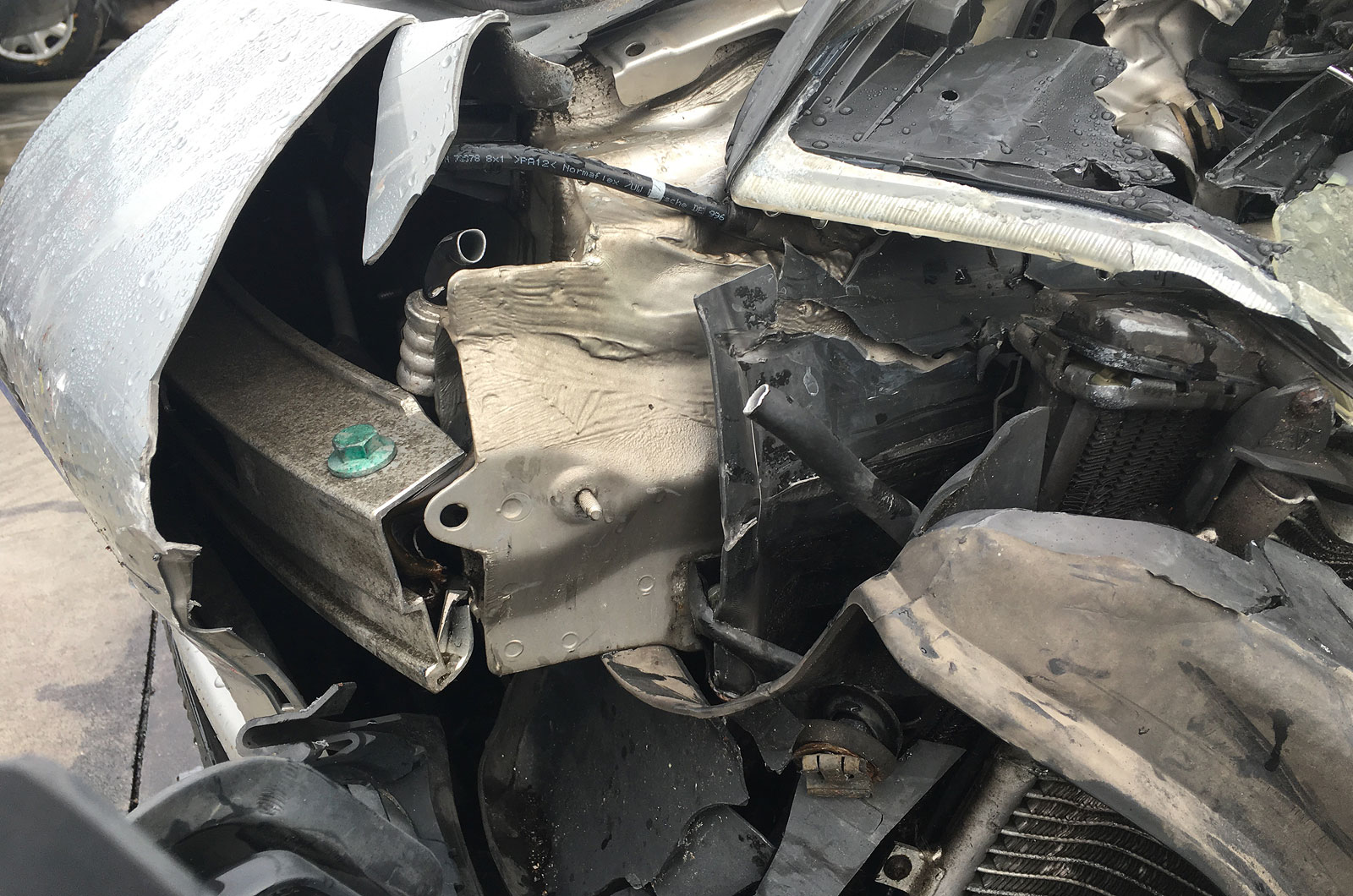By guest writer Rob Gordon
If you’re driving a car in France, don’t have a crash. If you do, don’t do what I did.
While driving down a small French village road, I stopped to allow a Clio coming the other way round a corner. In a spectacular display of bad driving, the Clio smashed into the front corner of my Porsche 996 Carrera 4S. Due to worrying about getting my family home on our booked EuroTunnel crossing the next day, I made a number of errors.
The Loss
If you have an accident in France, you are obliged to complete a form called a Constat Amiable. The purpose of this is for both parties to declare their views on the accident. Once completed and signed by both parties, it becomes a binding document for the use of the insurance companies involved.
Error number one: not being aware of the rules when driving in France. The Constat Amiable document took me by complete surprise and I did not understand the importance of it.
Error number two: the document was entirely in French and my O-Level ability was not up to translating it properly. I was not entirely sure what I was declaring when ticking the various boxes.
Error number three: the Clio driver had already filled in part of the form when he produced it, and he had ticked some boxes on “my half”.
Error number four: the accident had been a great shock and so we were more concerned about getting the family home than paying attention to the paperwork. It was foolish to assume that everyone is honest and would not make false claims. He claimed I was on the wrong side of the road – false.
In hindsight, I should have:
a) refused to complete a document that was already marked by the third party and demanded a new blank one.
b) been more careful about understanding what was written on the page.


















Join the debate
Add your comment
Same here in Portugal, it's
Same here in Portugal, it's called declaração amigável, had a bump, the other day, reversing at a supermarket park, and ended up filling it, then the insurance companies decide who's to blame.
Errrr... Actually
Guys, there is one siple trick...
Don't sign as the constat amiable is not compulsory. And what happens when you don't sign it... The liabilities are automatically shared as it is your word against the other driver's. How do I know that? Living in Paris, one day, a guy hit my car while I was waiting at a traffic light, and told me he was not going to sign the constat. He left. I thought he had to sign it and I had a picture of his car with its number plate, but I discovered that it is just a joint voluntary statement, which only become legally binding once it is signed. It its absence, the insurance companies share the liabilities if there are no witnesses or police reports. So next time, in doubt, don't sign it, you won't be breaking the law...
For you from UK and Eire, it
For you from UK and Eire, it must be all the more difficult, because we drive less well and are less civil on the continent...
Are we worse driver's? Not